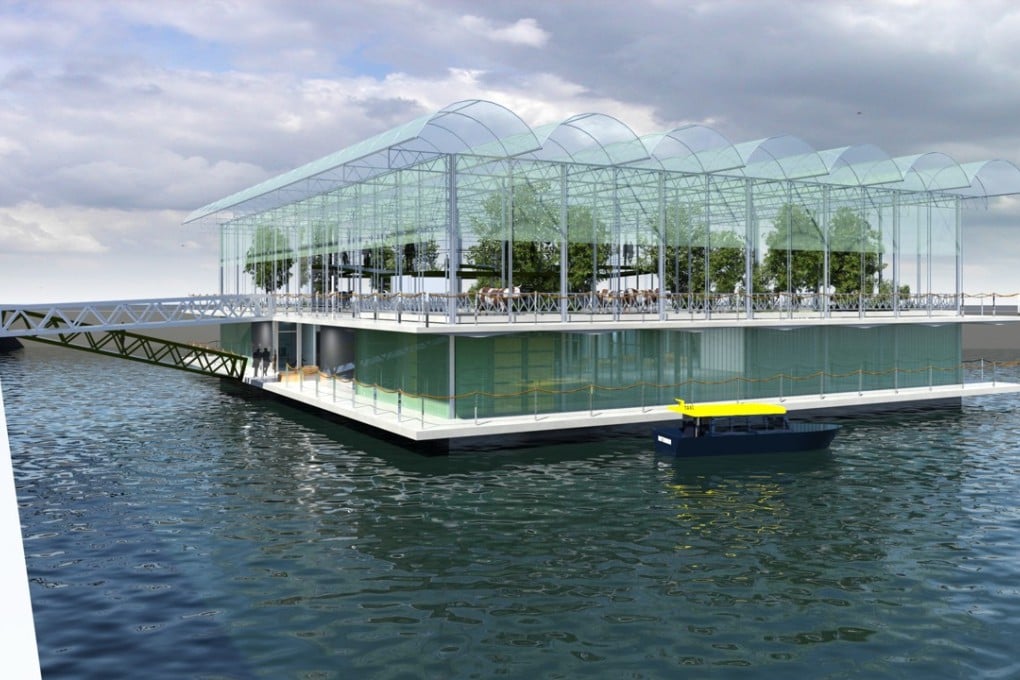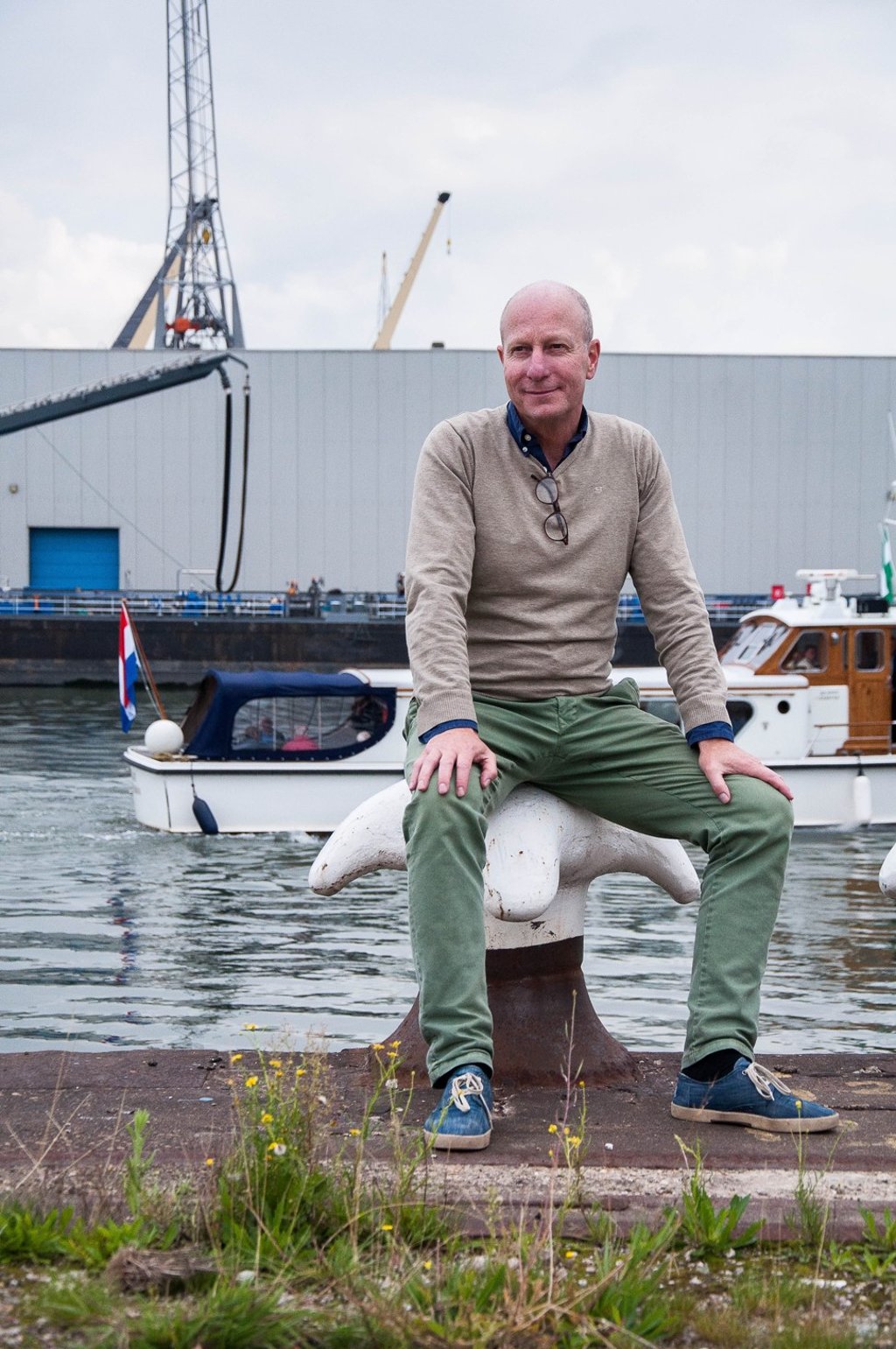Netherlands floating farm paves way for self-sustainable agriculture – could China be next?
- The world’s first floating dairy farm in Rotterdam will help the Dutch city produce more of its own food
- Company behind it is in talks with authorities in China, seeing it as a sustainable solution to swelling populations

Cows are not known for their love of water, but one Dutch engineer is out to change that. Of the many challenges Peter van Wingerden faced in his plan for a floating dairy farm in the Port of Rotterdam, one was to ensure cows didn’t suffer from seasickness.
“What we found was that cows can become seasick, but the risk is low,” says Van Wingerden, who has been working with his wife, Minke, since 2012 to develop the farm through their company, Beladon. “The floating farm is completely stabilised; there’s no movement at all, so there will be no seasick cows,” he says.
Asia’s first vertical forest could reshape how cities fight climate change
“We had to prove that there would be not too much smell and noise, and no water pollution,” Minke Van Wingerden adds.
Animal welfare, waste management and measures to stop a capsize during a storm had to be considered before the farm – complete with pastures and barns – could be floated in Rotterdam’s western port of Merwehaven. Costing €2.6 million (US$3 million), the farm is anchored to the sea floor and is expected to open by the end of the year.
A herd of 40 French Montbeliarde cows will live on the 10,760-square foot farm and are expected to produce high-quality yogurt and cheese for the local market.

The Dutch are no strangers to urban farming, but this innovative approach to traditional agriculture aims to protect the environment by reducing food miles – the distance food is transported from when it is produced until it reaches the consumer – and increasing self-sufficiency.